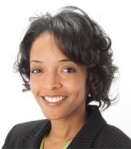We’re excited to continue our partnership with Trinity Institute by offering another course on Economic Inequality and the Church. Inequality — of resources, jobs, opportunities — robs people of their human dignity, one of the precious gifts from God we as Christians promise to honor and uphold. But the issue can seem so overwhelming, so complex and entrenched, that we don’t know where to start.
Why not start with each other? Conversation, discussion, sharing of ideas and resources, is one of  the great gifts of living in community. The video lectures in this latest course are full of wisdom and ideas while being provocative, challenging calls to action. We invite you to use this latest course in a way that is most helpful to your church or small group. Choose any or all of the video lectures and accompanying discussion questions to get yourselves thinking and talking about ways we can carry out Jesus’ mission of love, service, selfless generosity, and neighborliness.
the great gifts of living in community. The video lectures in this latest course are full of wisdom and ideas while being provocative, challenging calls to action. We invite you to use this latest course in a way that is most helpful to your church or small group. Choose any or all of the video lectures and accompanying discussion questions to get yourselves thinking and talking about ways we can carry out Jesus’ mission of love, service, selfless generosity, and neighborliness.
Malcolm Brown, director of the Mission and Public Affairs Division for the Church of England, argues that, contrary to public opinion over the last century, economics is the Church’s business; he tells how the Church of England is setting up credit unions in local parishes to support and encourage responsible economic stewardship. Juliet Schor, Professor of Sociology at Boston College, discusses how increasing concern around economic inequality, as well as environmental sustainability, have spurred new trends and hopeful responses, a real movement toward mindful, intentional, responsible living. And Michael Bowling, pastor of Englewood Christian Church in Indianapolis, reminds us that the message of the Gospel is not complex: we are called to deny ourselves, to love others more than we love ourselves, to take up our cross and follow Jesus’ example of ministry. He shares how his inner-city congregation has made educational equality a priority in order to support those who are most vulnerable – children – as well as the parents who are trying to provide for them.
There is perhaps no more challenging but vital mission than loving and caring for our neighbors — let’s start by working for equality and plenitude for all. Click here for more information or to take the course.



